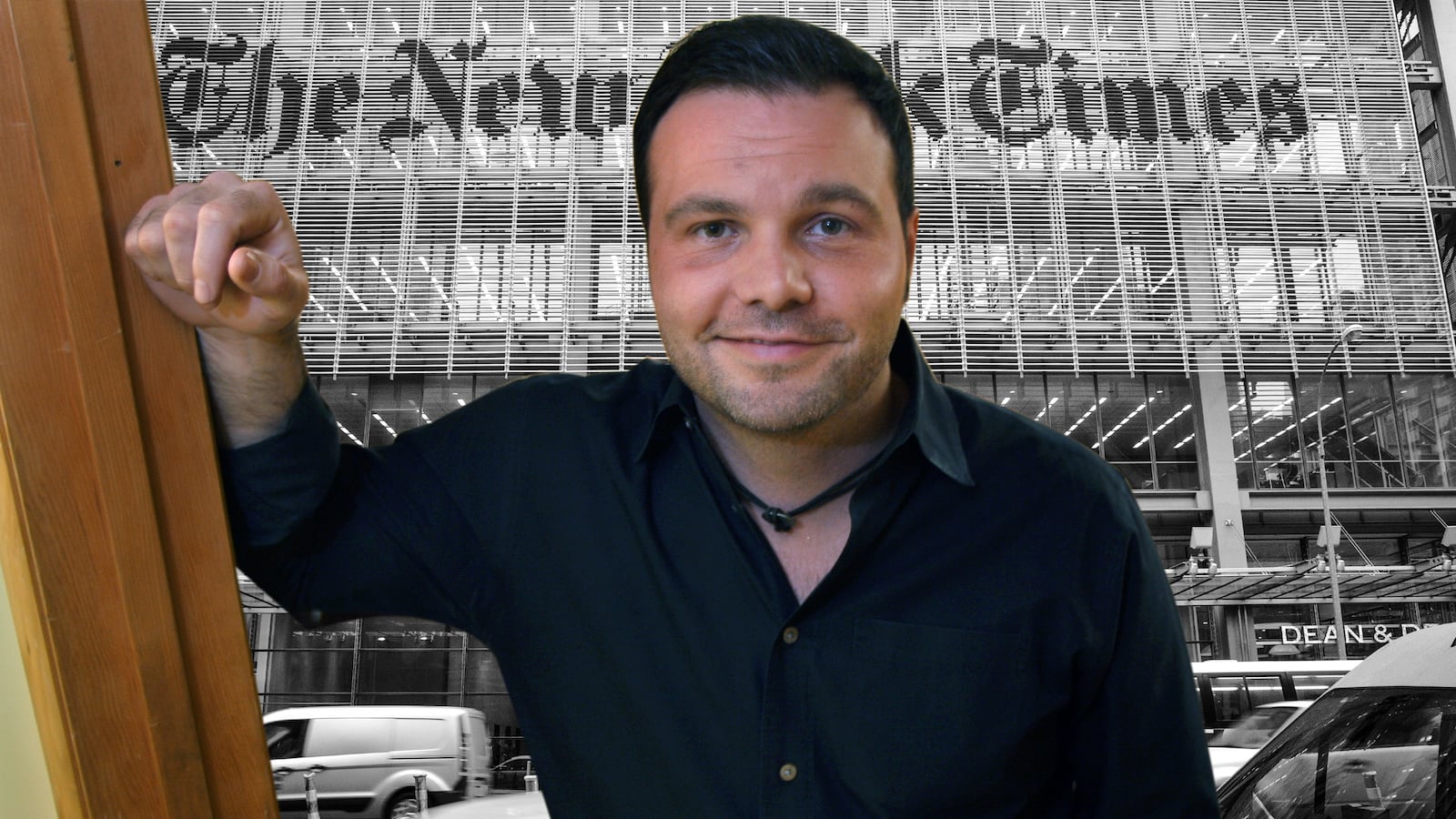In January 2012, former megachurch pastor Mark Driscoll’s book Real Marriage went to the top spot on the Hardcover Advice section of The New York Times best-seller list. In March 2014, it was disclosed by evangelical magazine, World, that Driscoll’s publishing success was aided by a consulting firm called ResultSource, which purchased books on behalf of Driscoll in a coordinated effort to spike sales and give the impression that the book was popular with thousands of book buyers. Driscoll recently resigned from his church and one factor associated with his departure is the decision to buy his way onto the best-seller list.
Driscoll later admitted that the scheme was wrong and even asked that the designation “New York Times best-selling author” be removed from his bio and book covers. However, Driscoll is not alone among evangelicals wanting to improve their brand and increase sales.
Jeffrey Trachtenberg pulled back the curtain on ResultSource’s operation in a 2013 Wall Street Journal piece. He noted that business and health care books have made the list with the help of ResultSource but didn’t report on any books from Christian publishers. The revelations about Driscoll’s Real Marriage best-seller campaign demonstrated that Christian authors and publishers also use the service. In fact, it appears that ResultSource CEO Kevin Small, as a graduate of Liberty University, is right at home with Christian clients.
Although the ResultSource website is now nothing more than a contact page, at one time the company boasted about its ability to land a best-selling book.
Imagine: Your Book, a Bestseller. What would a Bestseller do for your brand? Your business? Your future? Publishing a book builds credibility, but having a Bestseller initiates incredible growth—exponentially increasing the demand for your thought leadership, skyrocketing your speaking itinerary and value, giving you a national (even global) spotlight, and solidifying your author brand as the foremost leader in your niche.
It may be surprising that Christian authors would use tactics that even those outside the church consider unethical. Although the practice is a matter of considerable controversy within the evangelical world, some popular Christian authors have embraced ResultSource.
This week I reported on three other evangelical authors who have worked with Small to enhance their book’s position on best-seller lists. While it is not clear if these authors used the exact same scheme, they all credited Small with assistance to achieve their success.
I recently obtained internal memos from Mars Hill Church in which Small referred to evangelical icon David Jeremiah’s media ministry as a resource to help Mars Hill and Mark Driscoll with their now discredited best-seller campaign. Jeremiah has written numerous books and credited Small in at least two of them for his marketing genius.
When World’s editor Marvin Olasky asked Jeremiah about companies that arrange sales to achieve best-seller status (e.g., ResultSource), Jeremiah replied:
The bottom line is you’re selling these books and they’re just not getting noticed. If you want the books to be noticed so that you can reach more people with them, you’ve got to figure out how to do that. I don’t know all of the ramifications of it, but I know that you can’t just write a book and say I’m not going to have anything to do with marketing. If you don’t care enough about it to try and figure out how to get it in the hands of other people, nobody else is going to either.
I contacted Jeremiah’s organization several times over the past two weeks but so far I’ve received no response.
Back in Driscoll’s hometown of Seattle, another husband and wife team—Les and Leslie Parrott—has found success with Small’s company. They’re marriage counselors who have also written numerous books, with some landing on The New York Times list. Small is also acknowledged in many of their books. In another Mars Hill memo regarding the Real Marriage campaign, the Parrotts’ agent, Sealy Yates, disclosed that the couple’s book had made the number one spot on The New York Times Advice, How To Paperback chart. The book hit the top spot during the week of Sept. 25, 2011 but fell off the chart the next week. Yates told the Mars Hill staff:
I just got off the phone a little while ago with Kevin Small. He was calling to report to me that my client’s book, The Hour That Matters Most, published by Tyndale House Publishers (a book written by Les and Leslie Parrott and co-authored with the founders of Dream Dinners) was just announced as #1 on the New York Times (Advice, How To Paperback) list. The listing was without a dagger. A wonderful accomplishment by Kevin and his team and a thrill for Les and Leslie Parrott. I thought that you all would want to know about that, especially in light of the decision made by MHC [Mars Hill Church] to work with Kevin and his company, ResultSource.
And after the Driscoll story broke, another megapastor, Perry Noble, admitted to using ResultSource on one of his book projects.
I contacted The New York Times for comment and they told me that they are aware of the “shady” organizations that manipulate their list.
“We have developed a system to detect anomalies and patterns that are typical of attempts to gain a false ranking and warrant further inquiry,” said Danielle Rhoades-Ha, Director of Communications for the Times. “We know which publishers are the most likely to attempt such things. We know what tools they use and with whom—which organizations, special interest web sites, ‘consultants’ and shady order fulfillment houses and retailers—they tend to collaborate.”
Neither Tyndale House, publisher of the Parrotts’ The Hour That Matters Most, nor Harper Collins Christian, publisher of some of Jeremiah’s books, have responded to my request for comment.
I asked Christian publisher Crossway Books for their assessment of the manipulation of the best-seller lists. Justin Taylor, senior vice president and publisher at Crossway, told me that manipulating the lists is a violation of both standard and Christian ethics.
When it became known that Driscoll had purchased his way onto the list, the president of the Evangelical Association for Financial Accountability, Dan Busby, criticized the scheme, saying it was “unethical and deceptive” for ECFA-accredited churches to try to boost their sales this way.
None of the authors involved responded to repeated requests for comment or explanation. Small and Yates also declined to comment.
These authors may represent the tip of the iceberg, or they may represent a tiny fraction of authors who seek publishing success the old fashioned way. At present, given the silence of the largest Christian publishers, and the apparent willingness to go along with manipulation of the best-seller list, the Times’ rankings have lost their luster as a gold standard of book popularity. Until publishers declare the practice to be unethical, it will not be clear which authors are the real deal and which have purchased their way on the list.






